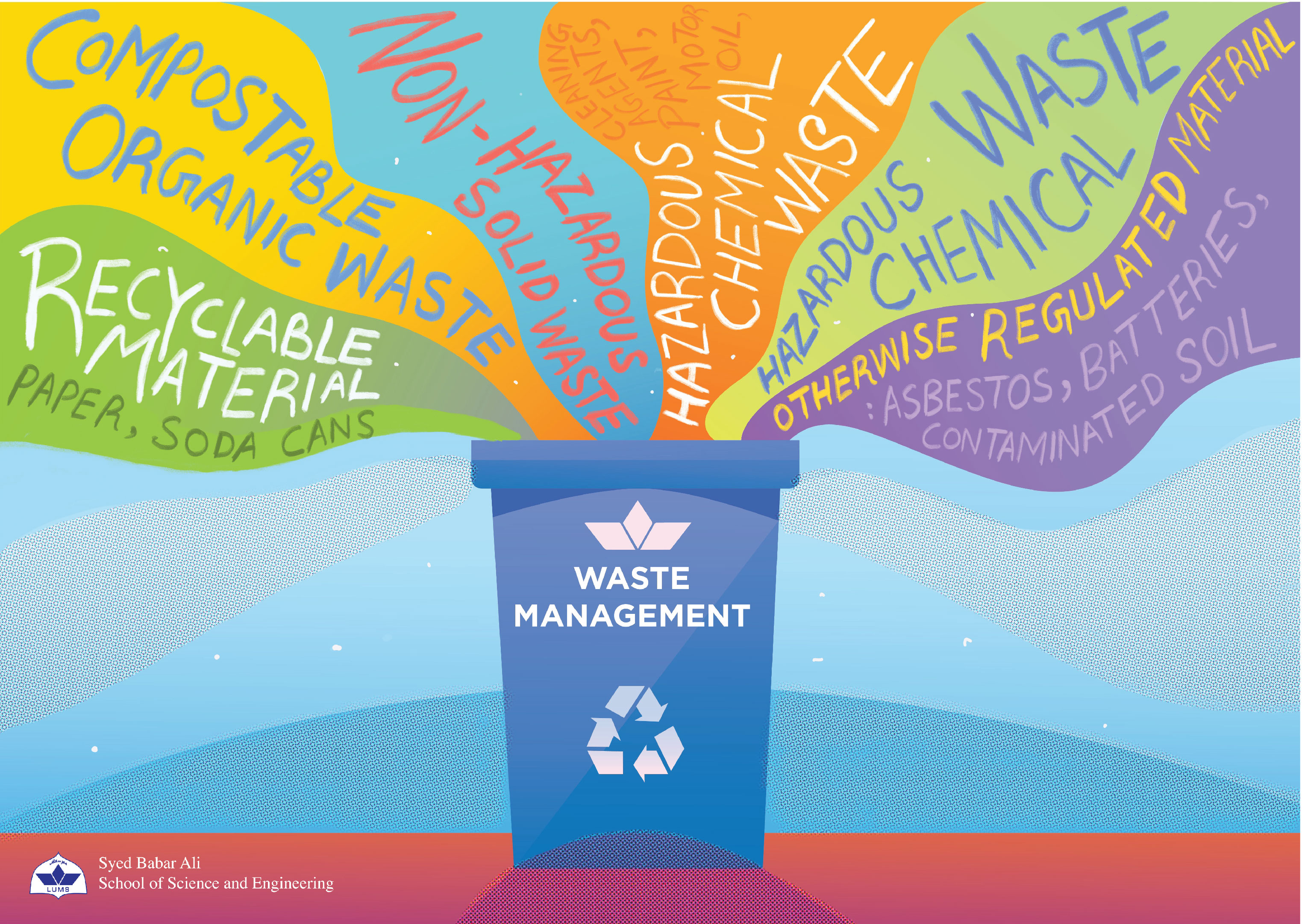Waste Management

Waste management is the collection, transport, processing or disposal of waste materials, usually ones produced by human activity, in an effort to reduce their effect on human health or local aesthetics or amenity.
Waste Identification
The school provides safe, effective, and efficient waste management services for managing non-hazardous and hazardous waste. Waste management procedures and practices are in place and adequate waste management training is provided to SBASSE community.
Waste Evaluation
The school evaluates its waste for its physical, chemical, and biological characteristics to determine how it is to be properly managed.
A waste may be:
- Recyclable material (e.g., paper, soda cans)
- Compostable organic waste (e.g. food, biodegradable plastics)
- Non-hazardous solid waste
- Hazardous biological waste: containing or contaminated with an infectious or potentially infectious agent, a biological toxin, animal carcasses, genetically modified organisms, recombinant DNA, etc.
- Hazardous chemical waste: waste chemicals, products which are chemical in nature (cleaning agents, paint, motor oil, and pharmaceutics), products that contain chemicals (fluorescent lamps, thermometers), or materials contaminated with chemicals (contaminated soil or rags)
- Otherwise Regulated Material: asbestos, batteries, contaminated soil, and construction debris.
Waste Handling
Once wastes have been identified and evaluated, the SBASSE community manage it according to applicable to SBASSE waste management procedure. These waste management procedures have been developed to keep the school in compliance with all applicable laws and regulations and to promote a safe and healthy workplace. Non-hazardous / hazardous waste (chemicals, bio waste, sharps etc.) is stored in designated bins with proper identification and color-coding. After some time interval, this waste is transported waste management plant for further treatment. SSE labs drain system is connected to the state of the art pH plant, where all lab effluents are treated before final disposal.

pH Neutralization Plant
Waste water treatment often consists of removing heavy metals and /or organic compounds from effluent streams. pH adjustment by addition of acidic/basic chemicals is an important part of any waste water treatment system as it allows dissolved waste to be separated from water during the treatment process.
The waste generated from the labs is collected at the collection storage tanks and its then batch-processed to the pH plant where it is treated. The treated flow is then passed to the downstream sewage treatment unit. Apart from this, the school has also integrated solid waste and concentrated liquid waste management systems which are all operated at the site of pH neutralization plant.





